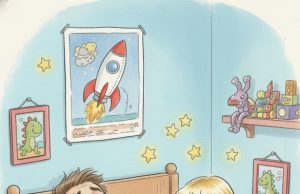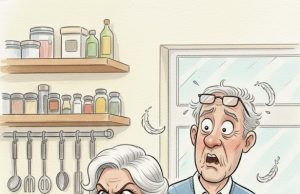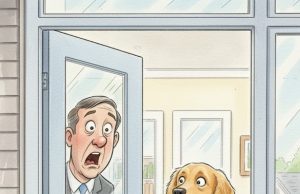
Sometimes your baby can get blisters on their lips. This can be caused by simple things like learning how to breastfeed or it can be a sign of an infection. There are things you can do to make sure your baby is comfortable and healing.
Causes of Blisters on Your Baby’s Lip
A blister is a raised bump on the skin that’s filled with fluid. The skin is tender and can hurt if it’s pressed or broken open, which can make your baby grouchy.
Babies can get breastfeeding blisters on the inside of their lips. The sucking action can cause a callus on the skin. Sometimes babies are born with these blisters if they sucked their fingers in the womb.
Cold sores cause blisters on the lips. Cold sores, sometimes called fever blisters, can show up on your baby’s lips and are caused by the Herpes simplex 1 virus. If you have an active sore, you should keep it covered and don’t kiss your baby. You might pass the virus to them. A herpes infection can be very dangerous for newborns.
Blisters can sometimes be an allergic reaction. Your baby could be allergic to ingredients in lotions, creams, or lip balm used on or near the lips. If your baby gets blisters after you introduce a food, they might have a food allergy.
Impetigo is an infection caused by Staphylococcus or Streptococcus bacteria that causes blisters on the lip and around the mouth. They can burst and leak fluid, and then a crust forms over top. They can also look like larger, clear blisters full of fluid that don’t burst.
Oral thrush causes white blisters on your baby’s lips. The white patches are also inside the mouth on the tongue, cheeks, and roof of the mouth. They look like cottage cheese or milk and can make it hurt to suck or swallow. This is caused by an overgrowth of yeast.
Signs of Blisters on Your Baby’s Lips

A blister is a raised bump on the skin full of clear liquid. It can break and leak, and the skin can be sore. This can cause your baby to have trouble eating or to be grouchy because it hurts.
If blisters are caused by learning how to breastfeed or from sucking, there might not be any other symptoms, though.
If your baby’s blisters are caused by an infection, they might have other symptoms. These include:
Fever
Pain
Tiredness
Smelly fluid leaking from the blister
White patches or white blister
Crusted skin
Swelling
Soreness
Blisters that spread
Treatment for Blisters on Your Baby’s Lips
The treatment for lip blisters differs depending on the type of blister. Dr. Diard explains.
Treatment for sucking blisters
Because sucking blisters go away on their own, you don’t really need to treat them. If your baby’s lips seem dry, a little olive or coconut oil can help. Rubbing on a bit of hand-expressed breast milk can also be very healing.
Treatment for cold sores
See your provider right away if your baby has a cold sore. Newborns with cold sores need urgent treatment with an antiviral medication to reduce the risk of severe disease.
“Even with treatment, newborn herpes can be life-threatening or cause long-term effects,” Dr. Diard says. “Your provider can guide their care and next steps.”
Treatment for other types of lip blisters
Treatment for the other types of lip blisters varies, but in all cases, it’s best to speak with your child’s healthcare provider.
For an allergic reaction, stop using any products that might be the source. Ask your provider to weigh in and offer tips to comfort them as they heal.
HFMD typically clears up on its own.
Impetigo and oral thrush require medications.
Preventive measures to avoid lip blisters
Although sucking blisters aren’t harmful and don’t require treatment, they can be a sign of feeding problems.
If you’re bottle-feeding: Make sure your baby gets most of the bottle’s nipple in their mouth and that the nipple is the right size.
If you’re breastfeeding: Make sure your baby has a good latch. If you’re having latching difficulties, a lactation consultant may be able to help.
When it comes to preventing cold sores, impetigo and other infectious diseases, take precautions around newborns.
“Anyone with a contagious illness should avoid close contact with a newborn,” stresses Dr. Diard. “If a close family member has an infection, talk to your provider about how to protect your infant.”
When Blisters Are an Emergency
Sometimes blisters on your baby’s lips can be a sign of something more serious. See your doctor if your baby has blisters and the following symptoms:
Stops breastfeeding, feeding, or drinking fluids
Sores near their eyes
Red, hot, swollen skin
Seizures
High fever
Spreading sores
Trouble breathing
Fast breathing
Grunting
Blue skin
Short periods of no breathing
Yellowing skin or eyes
Bleeding
Rash




















